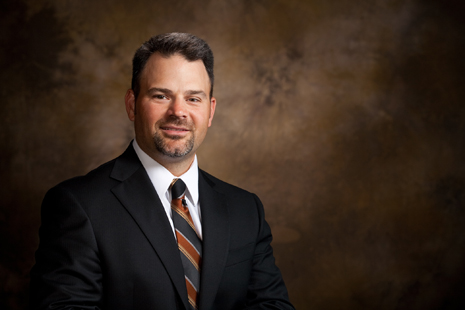FAYETTEVILLE, Ark. – In the first Blair-Rockefeller Poll Topic Report on findings from the poll, Todd Shields, political scientist at the University of Arkansas, examined the changes in voting habits of elderly Americans. In his analysis of the poll’s results, Shields found evidence of the “substantial obstacles that the Democratic Party and President Obama, in particular, face among those Americans 65 years and older.”
“Overall, the results of this survey indicate that the traditional base of support among older voters that Democrats have relied upon since the partisan realignment following the New Deal continues to weaken,” Shields wrote. “While older voters continue to vote in high percentages, compared to younger cohorts, clear support for the Democratic Party is confined largely to African-Americans.”
Shields’ report, titled “Shifting Support for Democratic Party Among American Elderly,” was released May 23 on the website of the Blair-Rockefeller Poll, http://blairrockefellerpoll.com. Shields and political scientists Pearl Ford Dowe, Angie Maxwell and Rafael Jimeno of the Diane D. Blair Center of Southern Politics and Society at the University of Arkansas created the Blair-Rockefeller Poll.
Conducted by Knowledge Networks in November 2010, the first Blair-Rockefeller Poll examined national and regional issues of concern to the population of the United States. With more than 3,400 respondents, the poll has a national scope as well as ample sampling of such traditionally under-polled groups as African Americans and Latinos. Additionally, by addressing topics that have been little studied, the poll allows researchers to identify socio-cultural influences on political values throughout the country with an emphasis on the South. The Blair Center partnered with the Winthrop Rockefeller Institute to produce the Blair-Rockefeller Poll.
“The significance of this survey is difficult to overstate,” Shields said. “Given the general absence of accurate data on Southern politics as well as attitudes and trends among minority groups, the Blair-Rockefeller Poll is a source of accurate information about Southern politics and policy, as well as the political and social attitudes of African Americans and Latinos.”
Among elderly African Americans, 69 percent from the South and 80 percent outside the South reported voting for a democratic congressional candidate. Very few reported voting for a Republican or not voting at all.
The results among Hispanics are mixed. A substantial number reported not voting: 43 percent in the South and 32 percent outside the South. Elderly Southern Hispanics were evenly split between support for Republican and Democratic Congressional candidates.
“To the extent to which Southern elderly Hispanics are divided between the two political parties, their low turnout rates represent an opportunity, and a potential battleground, for both political parties,” Shields wrote.
Elderly white voters, who tend to go to the polls, also tend to vote for the GOP, with 60 percent of Southerners and 54 percent outside the South voting for Republican Congressional candidates.
Additionally, older poll participants, from the South and outside the South, disapproved or strongly disapproved of President Obama’s job performance when polled in November.
“With over half of those 65 and over reporting disapproval of the way the president is handling his job in November 2010, it will be interesting to see how things develop over the coming year. The Democrats could well have a difficult road ahead of them if they hope to recapture the presidency in 2012,” Shields said. “Democrats will need to reach out to older voters, try to bring younger people to the polls, and attempt to reach out to an aging and largely conservative America.”
The Blair Center was established in 2001 by an act of the U.S. Congress and named in honor of political scientist Diane Divers Blair, who taught for 30 years in the J. William Fulbright College of Arts and Sciences at the University of Arkansas. The center studies the American South from a variety of angles to reveal the undercurrents of politics, history and culture that have shaped the region over time. For more information about the Blair Center, visit blaircenter.uark.edu or contact director Todd Shields at tshield@uark.edu.
The University of Arkansas System established the Winthrop Rockefeller Institute in 2005 with a grant from the Winthrop Rockefeller Charitable Trust. Based on the legacy and ideas of former Arkansas Gov. Winthrop Rockefeller, this educational institute and conference center offers workshops, seminars, public lectures, conferences and special events. Program areas include agriculture and environment, arts and humanities, economic development, and policy and public affairs. For more information about the Winthrop Rockefeller Institute, visit LiveTheLegacy.org or contact program director Susan Dumas at sdumas@uawri.org.
Contacts
Todd Shields, director, Blair Center
J. William Fulbright College of Arts and Sciences
479-575-5900, tshield@uark.edu
Barbara Jaquish, science and research communications officer
University Relations
479-575-2683,
jaquish@uark.edu
